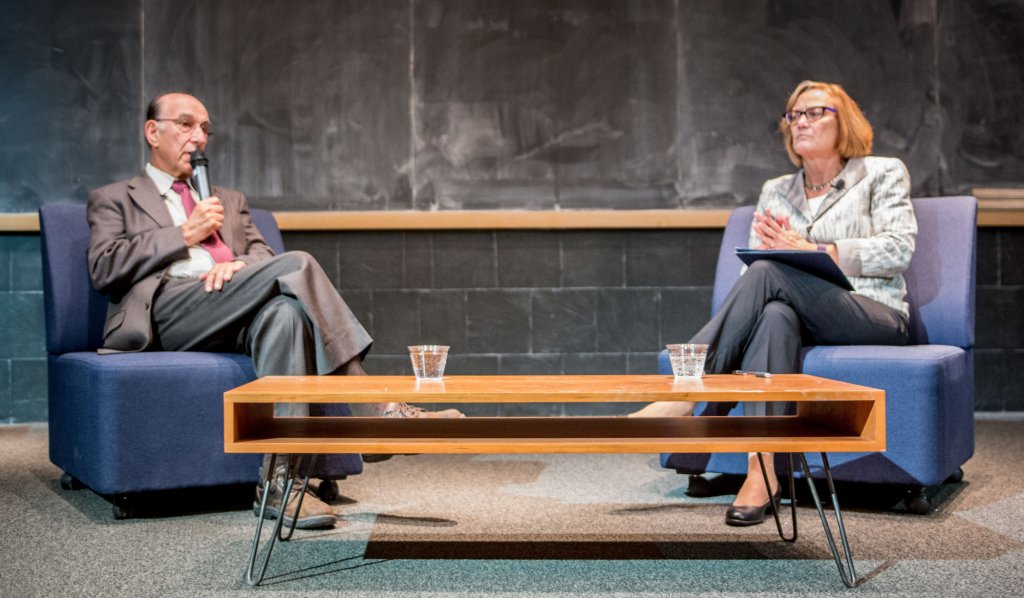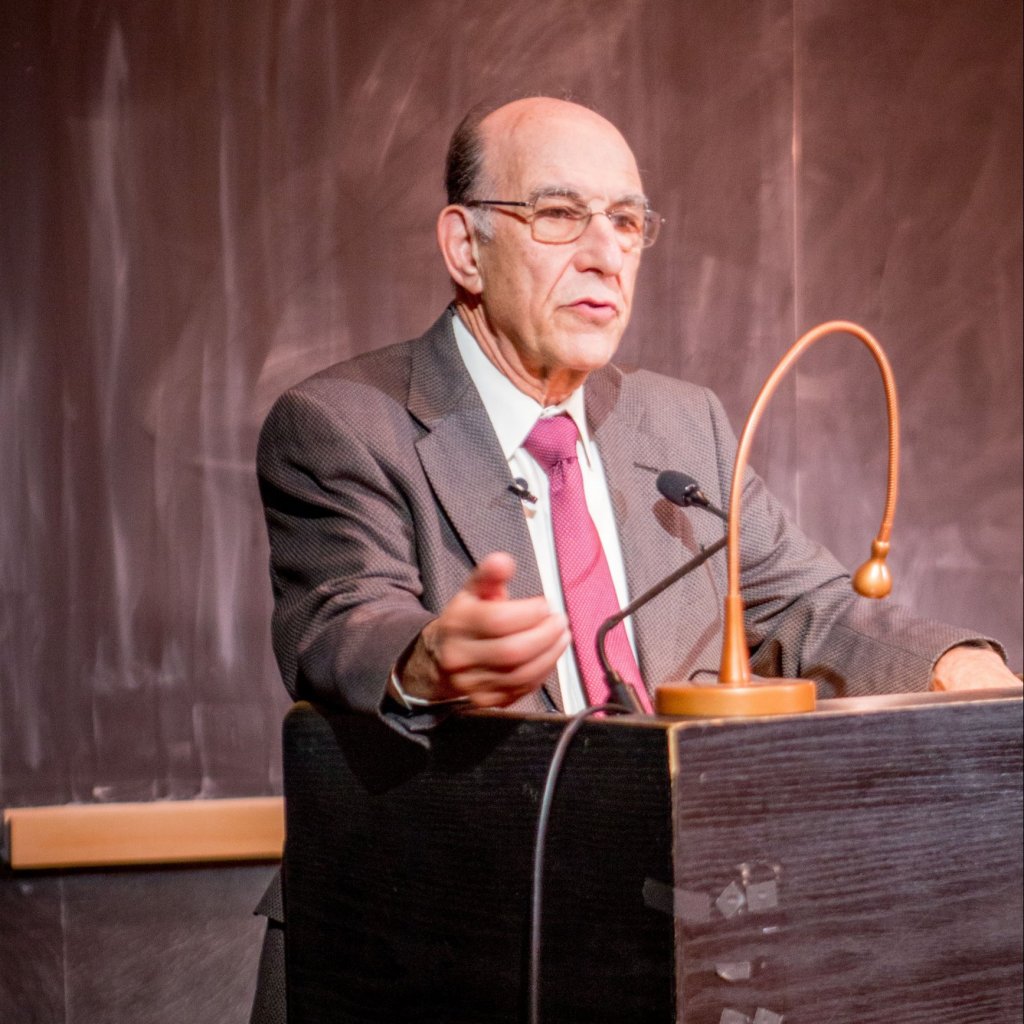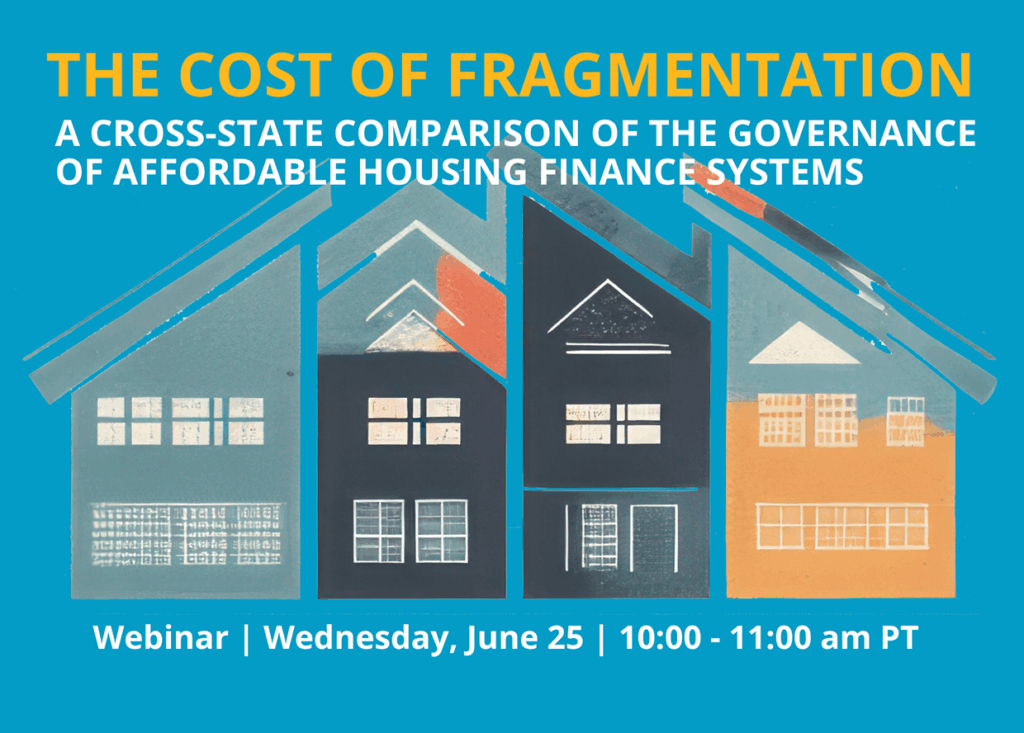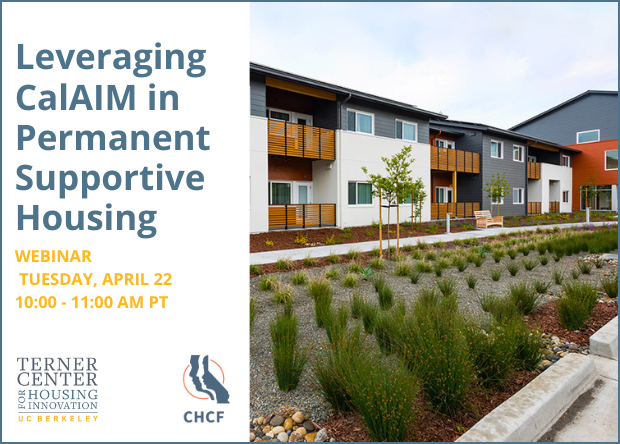Past Event: Richard Rothstein Lecture on The Color of Law at the Terner Center
Published On October 6, 2017
On Thursday, September 28, the Terner Center, in partnership with the UC Berkeley Department of City and Regional Planning, hosted Richard Rothstein, author of The Color Of Law: A Forgotten History Of How Our Government Segregated America. Rothstein spoke to a standing-room only crowd in Wurster Hall about the legacy of the many government policies that fueled segregation in American cities for decades, and discussed the implications of his research with Terner Center Faculty Director Carol Galante.
We invited Rothstein to provoke our collective thinking about important, challenging, and uncomfortable issues in housing policy. We believe it is critical to have these types of conversations, and advance understanding around them, if policymakers, practitioners, and researchers are to identify, develop, and implement effective solutions.
Rothstein observed that, while segregation in buses, restaurants, and schools has been addressed through legislation and litigation, neighborhood-level segregation has not. Instead, it has been allowed to persist and is accepted as an intractable problem in a way these other instances were not. He argues this is due in part to a widely-held, but false belief that neighborhood segregation is a “de facto” phenomenon (the result of a collection of individual racist decisions and self-selection into homogeneous communities) rather than “de jure” (the result of deliberate and systematic government efforts and policies at the local, state, and federal level) that have segregated metropolitan areas.

To illustrate the “de jure” nature of government-sanctioned segregation, he cited examples like the Federal Housing Administration (FHA). The FHA initially subsidized the construction of housing and suburban development for the white population while supporting policies such as redlining, which instructed banks and others to limit or deny loans to African Americans in many communities.
Rothstein noted that, while the Fair Housing Act was passed in 1968 to curb future discrimination, it did not undo the damage or legacy of earlier policies and ultimately left the inequitable structural conditions of the early- to mid-20th century in place. Today, a lack of access to homeownership for African American families has resulted in a staggeringly large wealth gap between white and African American families and many schools have resegregated, reflecting the segregated neighborhoods from which they draw their student body.
Following his remarks, Carol Galante engaged Rothstein in a dialogue about solutions to address this wealth gap and persistent (and in some cases, increasing) segregation in American cities. Rothstein framed his book as specifically intended to present the history of segregation so that readers might better understand its influence on current conditions. Though this history is not a secret, it has been forgotten, he argues. In Rothstein’s estimation, only once the public has a better understanding of this history can there be a real conversation about how to remedy it. He noted some encouraging signs that the conversation on race and racial segregation is evolving, citing New Orleans Mayor Mitch Landrieu’s May 2017 speech on confederate statues as an important example.
In his question and answer period with the audience, Rothstein also discussed a few possible policy solutions and fixes to address residential segregation, but noted that he looked to us – the Terner Center, students, academics, civic and community leaders – to learn from the history in his book and lead the way towards much needed change.
The Department of City and Regional Planning will be hosting other relevant and engaging speakers as part of their annual lecture series. Learn more about upcoming events on their webpage. Video footage of this event is available here on the Department webpage.






